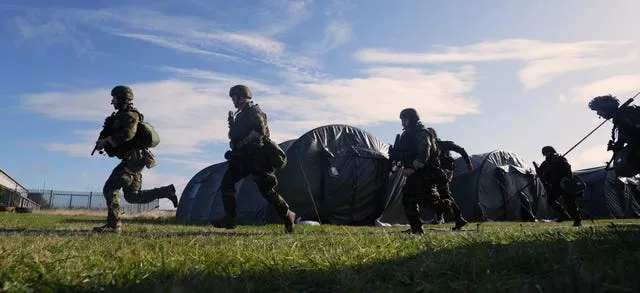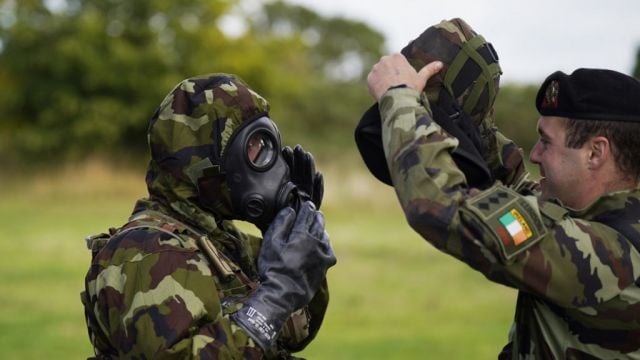Irish soldiers are preparing for the likelihood of deployment in 2025 as part of an EU battlegroup amid increased political instability around the world.
The Irish Government approved the participation by the Defence Forces in a German-led EU battlegroup this year and next year.
Its purpose includes acting as an initial entry force to stabilise a situation pending the deployment of a follow-on force, to support an established peace operation in difficulty, and to respond to humanitarian crises.
The group can be deployed 6,000km from Brussels, a region which stretches from the Balkans to the Sahel region of Africa.

This will be the eighth occasion where the Defence Forces have participated in an EU battlegroup, though it has never been deployed before.
The EU Battlegroup 2025, with a strength of 2,000 personnel, is a two-year programme which will be on standby for the entirety of 2025.
There will be 174 personnel from the Defence Forces in the battlegroup, as well as members from Austria, Croatia, Hungary, Latvia, Lithuania, Luxembourg, the Netherlands and Sweden.
The group carried out a certification exercise at the Gormanstown Camp in Co Meath on Wednesday where they simulated manning a perimeter and looking after access and entry points into a base.

Lieutenant Colonel Donal Burke said there was an “increased likelihood” of deployment this time.
He said the group was different from a peacekeeping mission as the battlegroup prepares for “all spectrum of crisis management” events.
“We’re very much focused on the peace enforcement because it’s the harder end of the spectrum.”

He added that this battlegroup was different from previous iterations.
“So we’re part of the European Union rapid deployment capacity. This has three main differences to previous battlegroups. One is the timescale. We are on a standby period for 12 months. Previously it was six months.
“The second main difference is the number of personnel. Previous battlegroups were 1,500 personnel, this battlegroup can scale up to 5,000 personnel.
“And the third difference is the political emphasis. There is a clear focus on the European Union being able to operationalise its foreign policy.”







